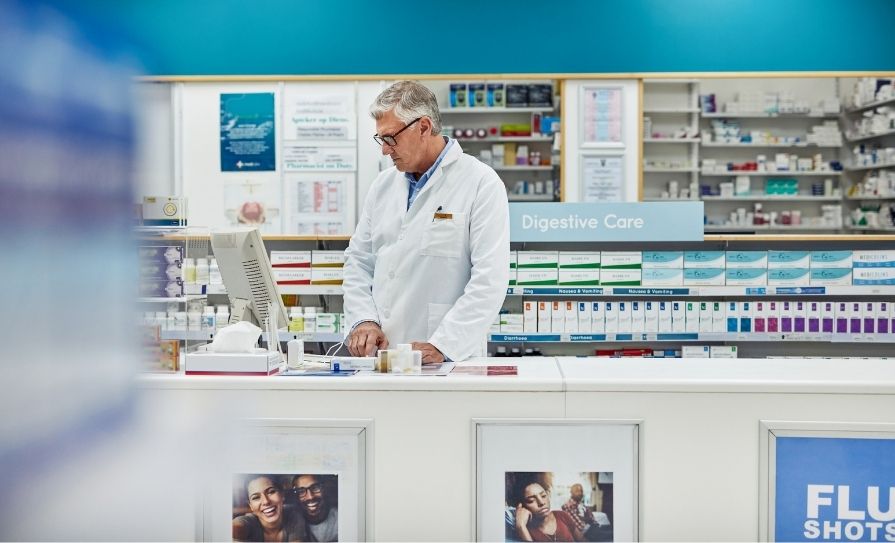Fintan Moore Looks At What May Have Changed In The Past Decade In The Profession And Why There Is A Shortage Of Pharmacists, Despite There Being More On The Register Than Ever Before.
There’s an interesting conundrum to be observed in the community pharmacy sector at the moment, which is that there is an extreme shortage of available pharmacists, despite the fact that there have never been more pharmacists on the register. The results of the shortage are that vacancies for supervising and support pharmacist roles are difficult to fill. There has also been massive wage inflation in the locum market, with rates sometimes advertised that are triple or even quadruple the standard going rate that existed pre- Covid. Whether this phenomenon is just a blip that will correct in the short-term or is a chronic issue that will persist until it’s somehow fixed, is anybody’s guess — if there has been any number-crunching done, I haven’t seen it, but I’d be curious. The number of pharmacies in the country is higher than ever before, but not to the point that it should be exhausting the pool of registrants.
Likewise, I don’t know if anybody has analysed the reasons for the lack of pharmacists in the market for employee posts, so I’d be equally interested to see a breakdown of what’s happening to all the registered pharmacists. Anecdotally, it’s reported that a lot of new graduates seem to become quickly disillusioned with the day-to-day reality of the community pharmacy treadmill. Again, and this is still anecdotal, but their lack of job satisfaction is causing them to take up posts in other pharmacy sectors, such as industry or regulation; or to exit completely and return to third-level education to pursue a different career.
So, what’s behind all the unhappiness? And why does it seem worse than it used to be? A lot of employees cite working hours as a bugbear. Compared to other professionals, we work longer hours at more unsociable times, such as evenings and weekends. The lack of a proper lunch break in many pharmacies also features in the ‘negatives’. However, these issues are nothing new, and a lot of employers find it difficult to fill roles that do provide a lunch break and have reasonably standard hours, so there must be more to it than just those.
What has changed in the last decade is the volume and variety of administration, regulation and bureaucracy. The job was always difficult, but the daily grind now additionally includes using the High Tech Hub, checking phased dispensing approvals, checking ONS approvals, checking diabetic test strip allowances, doing emergency DPS and LTI registrations, checking card eligibility, sorting Healthmails, ordering ULMs, sorting out the ever-increasing number of stock shortages, and to add insult to irritation, we’re now channelling our inner Tesco checkout worker and scanning FMD codes. So, if new graduates are dipping their toes in the water and getting out because they don’t like the temperature, it’s hard to blame them. Unfortunately, it’s creating a vicious circle in which the lack of pharmacists is piling more pressure on those remaining, leading to increased stress and burnout. Unfortunately, it’s hard to see a quick fix to any of this.
GOING VIRAL
It’s probably a bit premature to describe the country as being ‘post-Covid’, but it’s definitely not as much of an issue as it used to be for most people. At this point, the consensus seems to be that it’s time to behave with Covid much as we behave with seasonal flu, namely that we vaccinate as many people as possible, especially the potentially vulnerable, then get on with our lives while hoping for the best. It’s not perfect, but not many things are. However, in some ways I don’t think we’ll ever see a return to pre-Covid existence. Now that we’re all so much more aware of how, when and where viruses and other diseases can be transmitted, it’s going to be hard to ignore that knowledge.
So, what’s behind all the unhappiness? And why does it seem worse than it used to be?
The staff members in my workplace were so horrified at the level of saliva (or worse) that ended up spattered on the Perspex screens we put up as a Covid measure that I don’t think we’ll ever take them down. Similarly, I’ll never handle cash again without sanitising my hands; and the Novaerus air purifier is being left running to keep on doing what it’s been doing to make breathing that bit safer.
It really is a bug’s life, but the fewer bugs, the better.
NEW SEC GEN
Congratulations are in order to Sharon Foley, the new Secretary General of the IPU, taking over from Darragh O’Loughlin, who deserves a lot of credit for what he did in the role. She will doubtless be living in ‘interesting times’, and I wish her all the best. On reading her CV, I see that she was the CEO of the Irish Hospice Foundation for 11 years, so she could be well-placed to address an issue that arises every few months in my pharmacy, and doubtless in every other one.
When patients are getting palliative care at home and death is expected within a matter of days or even hours, the palliative care team often issues a prescription for specific items such as Hypnovel, Glycopyrronium, Maxolon amps, etc. The patient’s family often have to get this list re-written by their GP, and we have to order and dispense the items, which are often difficult to source without undue delay. Shortly afterwards, usually within 48 hours, we hear that the patient has passed away, and subsequently most of the medication gets brought back to us for disposal.
I don’t like turning away business, but the waste and inconvenience is unreasonable, and I see no reason why the palliative care teams shouldn’t get what they need from the hospice pharmacy. It would be more cost-effective for the HSE, as unused packs could be kept for future patients, and it would be easier for patients’ families also by sparing them the hassle of chasing-up prescriptions.
CONTRIBUTOR INFORMATION

Fintan Moore graduated as a pharmacist in 1990 from TCD and currently runs a pharmacy in Clondalkin. His email address is: greenparkpharmacy@gmail.com.







